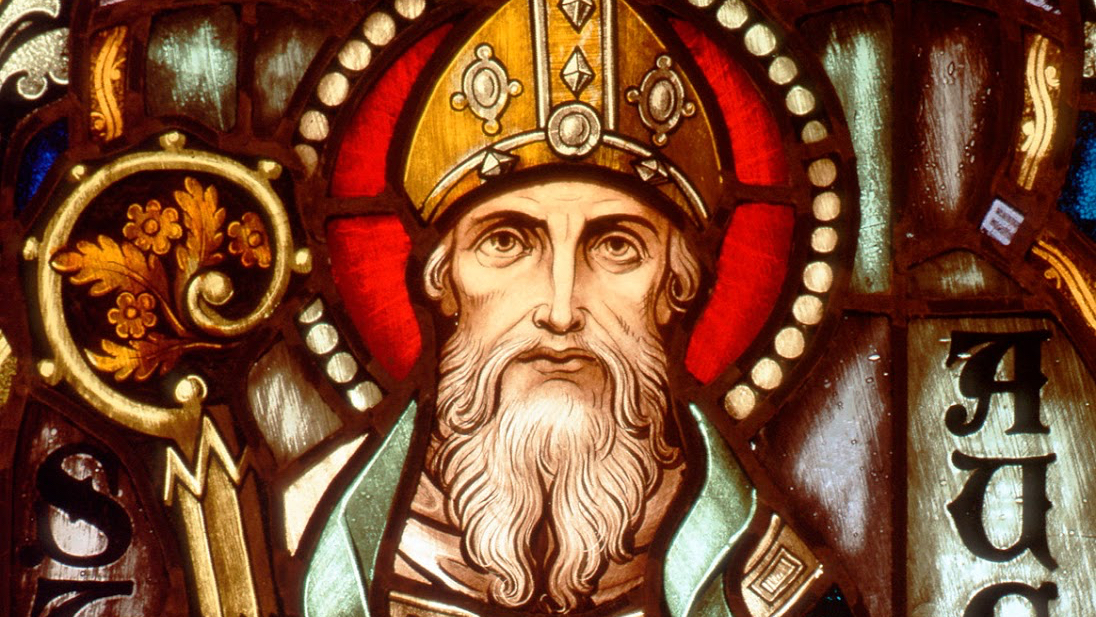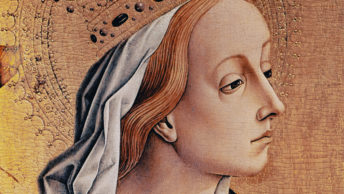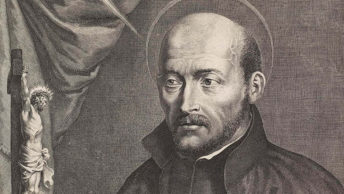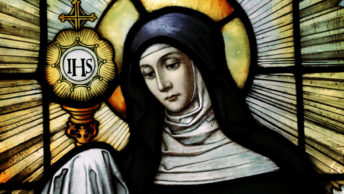According to one theological resource, “saints are distinct because of their relationship to God.” The Catechism of the Catholic Church (#946-948) provides us insight into this relationship:
After confessing “the holy catholic Church,” the Apostles’ Creed adds “the communion of saints.” In a certain sense this article is a further explanation of the preceding: “What is the Church if not the assembly of all the saints?” The communion of saints is the Church. “Since all the faithful form one body, the good of each is communicated to the others.… We must therefore believe that there exists a communion of goods in the Church. But the most important member is Christ, since he is the head.… Therefore, the riches of Christ are communicated to all the members, through the sacraments.” “As this Church is governed by one and the same Spirit, all the goods she has received necessarily become a common fund.” The term “communion of saints” therefore has two closely linked meanings: communion “in holy things” (sancta) and “among holy persons” (sancti).
To simplify this, we might say that within the communion of saints, there exist relationships among holy persons seeking holy things. A reminder of this may be found in Jesus’ encounter with the Pharisees (Mt 22:34-40). For when the lawyers asked Jesus about the greatest commandment, He described the characteristics of a friend of God: we love God by loving our neighbor. We are God’s friends seeking a more perfect communion with Him.
During the month of November, we remember All Saints and Souls. In doing so, a two-fold question is whispered into our ears: Are we God’s friends? Or, are we not? We are reminded that becoming a saint (God’s friend) is a lofty vocation filled with sacrifice and going places and doing things that the world sees as useless and unimportant. But nevertheless, that is what saints are called to do.
Growing up, I remember having a “Holy Card” view of the saints. Saints were, for the most part, relics from the past. After viewing their images on Holy Cards, we remembered what they accomplished, asked for their intercessory prayers, and then—moved on.
Over the years, however, my thinking changed.
When I was a young adult, an elderly couple were friends of my mother. Early in their marriage, she had contracted a muscular disease that left her wheelchair bound. For life. Each time I saw them, I wondered about the life they must have envisioned on the day of their marriage—that would never come to be. But when I was in their presence, I noticed something else: the way they cared for each other. Each time the husband would help his wife do what most of us consider to be the simplest of tasks, she would gaze at him. With love. Without bitterness, they had picked up the crosses given them and followed Jesus. And so, it was from my time spent with them that I came to understand what true love was all about. By loving each other, they loved God and provided a shining example of love to others. They were becoming God’s friends in the most special of ways. To this day, while acknowledging that I have no authority whatsoever to declare them saints of the Church, I believe that they are saints and rest in the communion of saints. And it is this communion that we are called to be part of!
While it is true that God has blessed our Church with an historic line of holy intercessors, we should remember that this holy line continues to the here-and-now. At this very moment, God is calling each of us to become saints. The question before us is whether or not we will accept His invitation.








